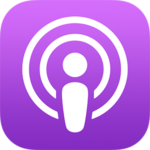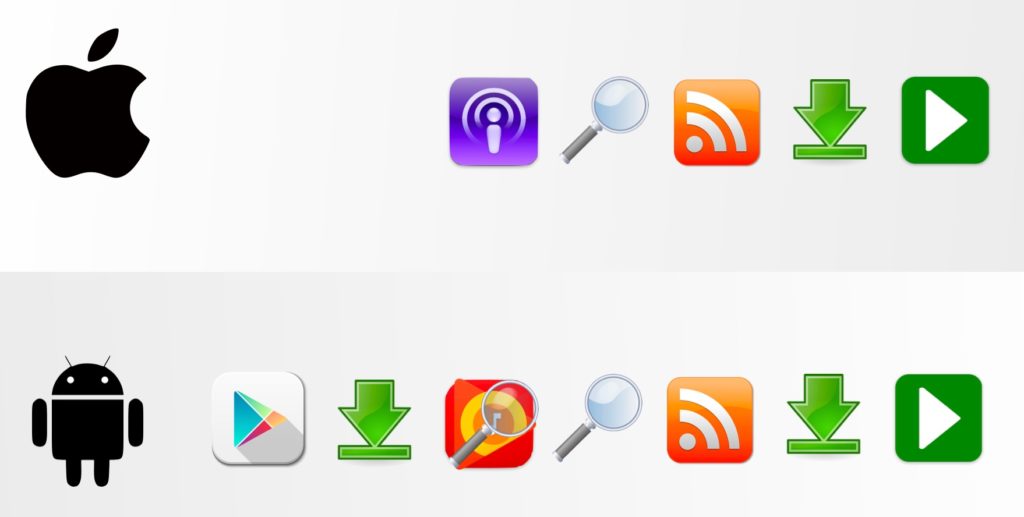
The overwhelming majority of podcast listening happens on Apple devices. While it can fluctuate, podcast hosting companies will tell you that roughly two-thirds of all podcast consumption takes place on iOS devices. Android comes in a distant second place.
So, why does Apple dominate the podcast medium?
To understand that, we need to take a closer look at the process involved in listening to a podcast. This process is slightly different on the two operating systems.
Apple used to include podcasts in a dedicated section of iTunes, its music management app. When it introduced iOS6 in 2012, it separated podcasts out into their own app, called Podcasts. When Apple introduced iOS8 in 2014, it made Podcasts a native app. That is, the Podcasts app came pre-installed on every iOS device; people no longer needed to download it from the App Store themselves.
So the steps required to listen to a podcast became:
- Open the Podcasts app.
- Find the podcast you want.
- Subscribe to the podcast.
- Download the latest episode.
- Play the episode.

Android phones, on the other hand, do not come with a dedicated podcast app already installed. As a result, listening to a podcast on an Android phone requires a few more hoops:
- Open the app store.
- Find and download a “podcatcher” (an app for listening to podcasts).
- Open the podcatcher.
- Find the podcast you want.
- Subscribe to the podcast.
- Download the latest episode.
- Play the episode.
It’s just a couple of extra steps, but those steps have a huge impact on podcast listening. That’s why many people in the podcasting space, myself included, believe the top factor that would increase the number of people who listen to podcasts globally is not just the release of compelling content (like Serial), but rather a technological development: if Google embraced podcasts by including a native podcatcher on every phone, listenership would increase dramatically.
Google took a step in the right direction in 2015, when it started including podcasts in its Google Play Music app; but this really just brings Google up to where Apple was in 2013, when it still included podcasts in a section of iTunes.
Of course, there are other technological developments that could drive more podcast listening. Spotify has embraced podcasts recently, and its app is installed on thousands of Android phones. Smart speakers, like the Amazon Echo and Google Home, could also contribute to an increase on podcast listening. So could dashboard operating systems like Apple CarPlay and Android Auto.
Still, the development that most of us are waiting for is the native Android podcatcher. It may come any day now, or it may never arrive. We’ll just have to wait and see.
More Digital Tips
- When Does a Radio Station Project Deserve Its Own Website?
- A Core Artist Just Died. Here’s How Your Radio Station Should Handle it Online.
- Celebrate the Holidays with Audio Treats for Your Listeners
- In the Podcasting World, Apple is the 800-Pound Gorilla
- Your Radio Station Staff Should Have These Images on Hand
- A Simple Digital Treat to Thank Your Radio Listeners This Thanksgiving - November 13, 2023
- Interview Questions When Hiring Your Radio Station’s Next Digital Marketing Manager - November 6, 2023
- A Radio Conversation with ChatGPT: Part 2 – Promotions - October 30, 2023





This is why those podcasters that have implemented subscribeonandroid.com do not have this problem.